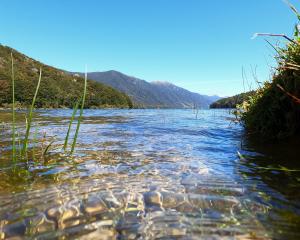Joss Miller reflects on culture in New Zealand. New Zealand has an amalgam of many peoples, all with different histories, religions and cultural traditions.
New Zealanders are fortunate to live in a country once described by British member of parliament Austin Mitchell as ''The Half-Gallon Quarter-Acre Pavlova Paradise''.
Ours is a country of profound beauty and contrast with a small population far removed from the conflicts of the world.
Living in a temperate climate it is hardly surprising that Kiwis excel in a wide variety of sports and given the extent of this engagement, sport in New Zealand must be viewed as a major cultural component.
Sporting heroes hold a particular pride of place in our society, with sport in general being a unifying and significantly defining feature of who we are.
Although sport plays an important role, the depth of a nation's culture will ultimately be measured by the enduring contribution from the creative and intellectual energy of its artists, writers, poets, musicians, philosophers, theologians, scientists, medical researchers and so forth.
The sense of a growing national identity is evident from the 1930s onwards.
The founding in 1935 of the Caxton Press in Christchurch provided a publishing base for New Zealand writers and poets.
The iconic New Zealand Listener was first published in 1939 and still continues to be popular.
Charles Brasch founded the literary publication Landfall in Dunedin in 1947 to provide a voice for New Zealand writers. Janet Frame is a towering figure in our literary landscape.
The painter Colin McCahon was a significant presence in the art world from the 1940s, being one of several gifted artists, including Rita Angus and the late Ralph Hotere, who identified closely with local landscapes and themes.
Douglas Lilburn forged a lonely road in the hope one day New Zealand could also stand tall as a nation in this particular sphere of musical culture.
The National Orchestra of New Zealand was established in 1946 and has been a significant presence since.
New Zealand diva Dame Kiri te Kanawa has graced the opera stages of the world for many decades.
Musicians and bands such as Howard Morrison, Dave Dobbyn, Crowded House and the Exponents have all created a rich legacy of unmistakably Kiwi music.
In the film world, Peter Jackson has created a special identity for New Zealand as inhabitants of the mythical realm, Middle-earth.
How is New Zealand faring in the university and academic sphere?
Recent international rankings placed Auckland University at 94th and the University of Otago at 155th.
If being awarded a Nobel Prize is a benchmark for intellectual excellence, then our achievements are quite modest.
There have been three New Zealand-born Nobel prize winners - Ernest Rutherford 1908 (chemistry), Maurice Wilkins 1962 (physiology) and Alan McDiarmid 2000 (chemistry).
All of them achieved this distinction while living and working overseas.
The questions need to be asked - what could we be doing better?
Are our universities nurturing and encouraging critical thinkers or have they largely become processing centres aimed at producing certain outcomes within what are mandated to be culturally correct parameters?
Should there be some sort of collective sense as to what might constitute a national culture?
The Museum of New Zealand, Te Papa, sometimes referred to as ''our place'' is, I suggest, an example of a political construct that leaves quite a lot to be desired.
Some displays have definite social and historical merit but others appear simple and frivolous.
A substantial portion of the museum is effectively an interactive playground for children and adolescents.
If one is looking for a meaningful sense of our nation's journey then Te Papa is not the place.
New Zealand has an amalgam of many peoples, all with different histories, religions and cultural traditions.
The sound of Scottish bag pipes can be evocative and stirring. Most of us are familiar with the haunting qualities of Gaelic music.
The soft rhythms of Pasifika are now deeply embedded in Auckland. Chinese New Year celebrations have become increasingly prevalent.
Maori history and culture has been long established. Maori are the tangata whenua, the original inhabitants.
Their culture has a rich tapestry of music, dance and carving allied with particular customs and traditions. Maori language is reflected in common Kiwi idiom.
A special feature of New Zealand is the extent Maori and subsequent immigrants have integrated as reflected in high levels of intermarriage.
Considerable progress has been made in the past 30 years to address historical Maori grievances and settle land disputes.
New Zealanders in general exhibit a sense of fairness and respect in their dealings.
As a country, we have largely left behind the antiquity of Europe and continue to forge our own way as an independent nation.
We are far from perfect and need to do much better in some areas. We don't always readily accept criticism or reflect well on it.
But, overall, we enjoy a cohesive and harmonious existence with our own distinct Kiwi culture.
To be able to continue to blossom, this needs to evolve unimpeded and undirected.
Joss Miller is a Dunedin lawyer.











